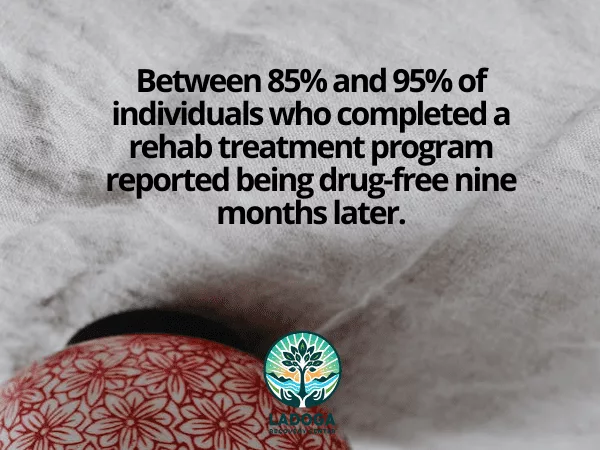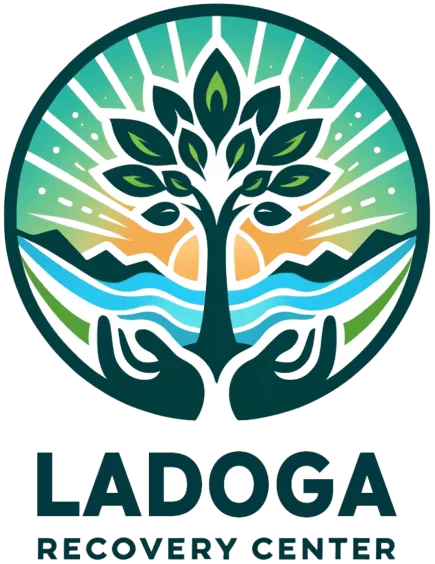Recovering from substance addiction is one of the most courageous journeys a person can undertake. However, the first and most critical step in this process is detoxification—the removal of harmful substances from the body. Detox is essential for achieving sobriety, but for many individuals, it can be an uncomfortable and even dangerous process if not managed correctly.
Medical detox provides a safe, structured, and supportive environment where individuals can withdraw from substances under professional supervision, minimizing health risks and easing withdrawal symptoms. At Ladoga Recovery Center, we offer comprehensive medical detox services to help individuals successfully start their recovery journey and transition into long-term treatment.
This article explores the advantages of medical detox, why it is the safest and most effective choice for individuals struggling with addiction, and how it sets the foundation for lasting recovery.
What Is Medical Detox?
Medical detox is a professionally supervised withdrawal process that allows individuals to safely rid their bodies of drugs or alcohol while receiving medical and psychological support. It is designed to manage withdrawal symptoms and prevent potentially life-threatening complications that can arise when someone abruptly stops using substances.
Detox is not a complete treatment for addiction but rather the first step in a comprehensive recovery plan that includes:
- Detox Treatment Program – The initial phase of recovery focused on physical stabilization.
- Residential Treatment Program – A structured, 24/7 care program to address the emotional and psychological aspects of addiction.
- Inpatient Treatment Program – A more intensive level of care for individuals who need medical and mental health support.
- Substance Abuse Treatment Program – A combination of therapy, counseling, and relapse prevention strategies.
Medical detox is particularly important for individuals withdrawing from substances such as:
- Alcohol
- Heroin and other opioids
- Cocaine
- Marijuana
- Benzodiazepines (benzos)
Why Is Medical Detox Necessary?
Many individuals attempt to detox at home, believing they can quit “cold turkey.” However, this approach can be extremely dangerous and often leads to relapse due to the severity of withdrawal symptoms. Medical detox provides a safe and supportive environment where individuals receive professional care to manage withdrawal and prepare for continued treatment.
Here are the key benefits of medical detox:
1. Safe and Supervised Withdrawal
One of the most significant risks of detoxing alone is experiencing severe or life-threatening withdrawal symptoms. Medical detox provides 24/7 supervision to ensure safety and comfort throughout the withdrawal process.
Common withdrawal symptoms and potential complications include:
- Alcohol Withdrawal – Delirium tremens (DTs), seizures, hallucinations, and severe anxiety.
- Heroin & Opioid Withdrawal – Intense cravings, nausea, vomiting, muscle pain, and dehydration.
- Cocaine Withdrawal – Severe depression, agitation, paranoia, and suicidal thoughts.
- Marijuana Withdrawal – Insomnia, mood swings, loss of appetite, and anxiety.
- Benzodiazepine Withdrawal – Panic attacks, seizures, confusion, and muscle stiffness.
At Ladoga Recovery Center, our medical detox team includes:
- Doctors and nurses who monitor physical health and prevent complications.
- Medication-assisted treatment (MAT) to manage withdrawal symptoms and cravings.
- Hydration and nutritional support to restore strength and balance.
With professional supervision, individuals experience a safer and more comfortable withdrawal.
2. Reduction of Withdrawal Symptoms
Withdrawal symptoms can be intense, painful, and emotionally overwhelming. Without proper medical care, individuals often relapse just to alleviate discomfort.
Medical detox reduces withdrawal symptoms by:
✔ Using FDA-approved medications to ease cravings and stabilize mood.
✔ Providing IV fluids and nutrition therapy to prevent dehydration and malnourishment.
✔ Offering sleep aids and mental health support to reduce anxiety and insomnia.
By minimizing discomfort, medical detox increases the likelihood of completing the detox phase and successfully transitioning into long-term treatment.
3. Lower Risk of Relapse
Attempting to detox alone significantly increases the risk of relapse. The discomfort of withdrawal, combined with intense cravings, can lead individuals to return to substance use before the detox process is complete.
How medical detox reduces relapse risk:
✔ A secure, drug-free environment that removes triggers and temptations.
✔ Psychological support to help individuals cope with cravings and distress.
✔ Immediate access to further treatment, such as a Residential Treatment Program.
By completing detox in a professional treatment setting, individuals gain the strength and stability needed to move forward in their recovery.
4. Individualized Care and Mental Health Support
Many individuals struggling with addiction also suffer from co-occurring mental health disorders, such as anxiety, depression, PTSD, or bipolar disorder. Medical detox programs provide integrated care for both substance withdrawal and underlying mental health issues.
At Ladoga Recovery Center, our approach includes:
✔ Comprehensive psychological evaluations to assess emotional and mental health needs.
✔ Customized treatment plans to address each individual’s unique situation.
✔ One-on-one counseling and support groups to begin emotional healing.
Detox is not just about cleansing the body—it’s about restoring mental and emotional well-being, too.
5. Smooth Transition to Long-Term Treatment
Detox alone is not enough to achieve lasting recovery. Without further treatment, individuals remain at high risk for relapse.
A medical detox program ensures a seamless transition into continued care, including:
- Residential Treatment Program – A structured setting offering therapy, group counseling, and peer support.
- Inpatient Treatment Program – Intensive medical and psychological care.
- Substance Abuse Treatment Program – Comprehensive therapy to address addiction’s root causes.
- Specialized Addiction Treatment Programs for:
With a personalized treatment plan, individuals build coping skills, develop relapse prevention strategies, and gain the tools needed for lifelong sobriety.

6. The Role of Nutrition and Holistic Therapies in Medical Detox
Detox is not just about removing substances from the body—it’s also about rebuilding physical and mental health. Proper nutrition and holistic therapies play a crucial role in strengthening the body and mind during the withdrawal phase.
Importance of Nutrition in Detox
Substance use depletes the body of essential vitamins and minerals, weakening the immune system and disrupting normal bodily functions. A nutrient-rich diet during detox helps:
- Restore energy levels and improve overall well-being.
- Support liver function in eliminating toxins.
- Strengthen the immune system to promote healing.
- Stabilize mood and reduce cravings through proper blood sugar balance.
At Ladoga Recovery Center, our medical detox program includes:
✔ Personalized meal plans tailored to each individual’s nutritional needs.
✔ Hydration therapy to replenish lost fluids and prevent dehydration.
✔ Supplementation with essential vitamins and minerals such as B-complex, magnesium, and omega-3 fatty acids to support brain and nervous system recovery.
Holistic Therapies for Comfort and Healing
In addition to medical care, holistic therapies provide additional support for the body and mind during detox. These therapies help reduce withdrawal symptoms, promote relaxation, and improve emotional well-being.
Popular holistic therapies integrated into detox programs include:
- Yoga and stretching exercises – Help relieve muscle tension, reduce anxiety, and improve overall mobility.
- Meditation and mindfulness techniques – Assist with stress management and enhance self-awareness.
- Acupuncture and massage therapy – Alleviate withdrawal discomfort and promote relaxation.
- Music and art therapy – Encourage emotional expression and provide positive outlets for stress relief.
A well-rounded detox approach, incorporating both medical and holistic treatments, maximizes comfort and sets the stage for long-term recovery success.
Take the First Step Toward Lasting Recovery
Choosing medical detox is a life-changing decision—one that prioritizes safety, comfort, and long-term success. Detox is not just about getting substances out of your body; it’s about laying the foundation for a healthier, sober life. By choosing a professional Detox Treatment Program, you are taking control of your future and setting yourself up for sustainable recovery.
At Ladoga Recovery Center, we understand that addiction is complex, and recovery is personal. That’s why we provide compassionate, medically supervised detox services that address both the physical and emotional aspects of withdrawal. From round-the-clock medical care to holistic therapies and mental health support, our goal is to ensure you start your recovery journey in the safest and most supportive environment possible. Call us today: 844.628.4917, A new life starts with the first step—reach out to Ladoga Recovery Center today.
Frequently Asked Questions (FAQs) About Medical Detox
How long does medical detox take?
The detox process typically lasts 3 to 10 days, depending on the substance, severity of addiction, and overall health.
Is medical detox painful?
While withdrawal symptoms can be uncomfortable, medical detox provides medication and supportive care to ease discomfort and prevent complications.
Can I detox at home?
Detoxing at home is dangerous and not recommended, especially for substances like alcohol, opioids, and benzodiazepines. Medical supervision is crucial to ensure safety.
What happens after detox?
After detox, individuals transition into a Residential or Inpatient Treatment Program to continue therapy and build long-term recovery skills.
How do I start my recovery journey at Ladoga Recovery Center?
Simply call us at 844.628.4917 to speak with a treatment specialist who will help you begin your journey to recovery.

